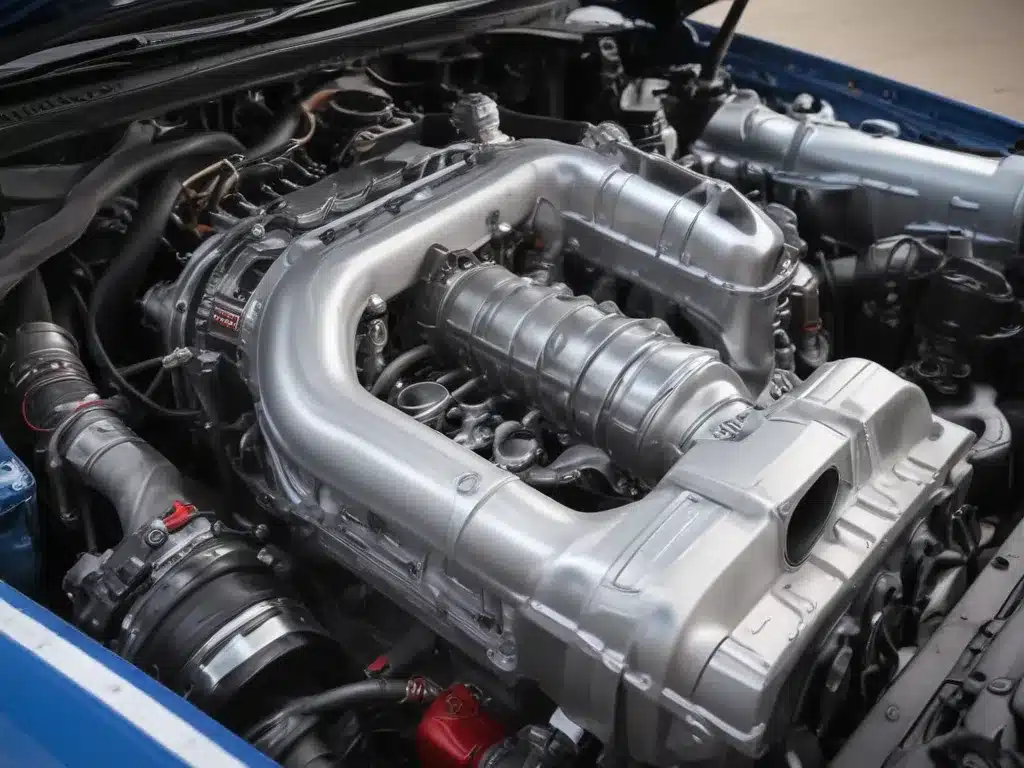
The Turbo Dilemma: Synthetic vs. Conventional Oil
As an avid car enthusiast and self-proclaimed motor oil connoisseur, I’ve always been fascinated by the age-old debate surrounding the best oil for turbocharged engines. Should you go with the tried-and-true conventional oil, or take the plunge into the world of synthetics? It’s a decision that can have a profound impact on the performance and longevity of your high-powered ride.
Let me tell you, I’ve been down this road before. Back when I was rocking a heavily modded Subaru WRX, I went through my fair share of oil changes and engine rebuilds. At first, I stuck with the good ol’ conventional stuff, but as my turbo started spooling harder and my engine temps climbed, I knew I needed to make a change. That’s when I made the switch to a full synthetic oil, and let me tell you, it was a game-changer.
Conventional Oil: The Old Faithful
Now, conventional oil has its merits, no doubt about it. It’s been around for decades, and for good reason – it gets the job done. Conventional oils are typically cheaper than their synthetic counterparts, and they can provide adequate lubrication for less demanding engines. But when it comes to the high-heat, high-stress environment of a turbocharged setup, conventional oil just doesn’t cut it.
You see, the intense heat and pressure generated by a turbocharger can cause conventional oil to break down more quickly, leading to increased wear and tear on critical engine components. And let’s not forget about the increased soot and debris that builds up in the oil, thanks to the turbo’s tendency to suck in all sorts of nasties from the intake. That gunk can clog oil passages and wreak havoc on your engine’s internals.
Synthetic Oil: The Turbo Tamer
Enter synthetic oil – the savior of the turbocharged engine. These lab-engineered lubricants are designed to withstand the rigors of forced induction. They have a higher resistance to thermal breakdown, better viscosity control, and enhanced detergent and dispersant additives to keep your engine clean and happy.
I’ve seen it firsthand – when I switched to a high-quality synthetic oil in my WRX, the difference was night and day. My turbo spooled up faster, my oil temps stayed rock-solid even during extended high-rpm runs, and my engine just felt healthier overall. And the best part? I could go longer between oil changes without worrying about my engine’s well-being.
The Verdict: Synthetic is the Way to Go
Now, I know what you’re thinking – “But synthetic oil is more expensive! How can I justify the extra cost?” Well, let me put it this way: Would you rather pay a little bit more upfront for a quality synthetic oil, or risk a catastrophic engine failure down the line? For me, the choice is clear.
Sure, you might save a few bucks in the short term by sticking with conventional oil, but in the long run, synthetic is the way to go for turbocharged engines. The added protection and performance benefits are well worth the investment, especially when you consider the cost of rebuilding an engine.
Real-World Examples: Synthetic Oil Shines
Don’t just take my word for it, though. Let’s look at some real-world examples of how synthetic oil has saved the day for fellow turbocharged enthusiasts.
Take my buddy, Mike, for instance. He’s got a heavily modified Mitsubishi Lancer Evolution, and he was going through conventional oil changes like clockwork – every 3,000 miles. But after a few too many track days and spirited canyon runs, his engine started showing signs of wear. That’s when he made the switch to a high-quality synthetic blend.
“The difference was night and day,” Mike told me. “My oil temps dropped by almost 50 degrees Fahrenheit, and I was able to go twice as long between changes without any issues. Plus, my turbo just felt more responsive and my engine ran smoother overall. Synthetic oil was definitely the way to go for my Evo.”
And then there’s my buddy, Sarah, who owns a souped-up Volkswagen Golf R. She was initially hesitant to make the switch to synthetic, but after doing some research and talking to the mechanics at https://autooilandfluid.com/, she decided to give it a shot.
“I was a little skeptical at first, but the mechanics at Auto Oil and Fluid really convinced me that synthetic oil was the best choice for my turbocharged engine,” Sarah said. “They explained how the improved heat resistance and cleaning properties of synthetic would help protect my engine, especially under the high-stress conditions of my daily commute and occasional track days. And let me tell you, I’m so glad I listened to them. My Golf R has never run better!”
The Bottom Line: Synthetic Oil Wins
So, there you have it – the case for synthetic oil in turbocharged engines is strong, my friends. The improved protection, performance, and long-term cost savings make it a no-brainer, in my opinion.
Sure, conventional oil may work just fine for some less demanding engines, but when you’re talking about the high-heat, high-stress environment of a turbocharger, synthetic is simply the superior choice. It’s the oil that’s going to keep your engine running strong, mile after mile, without breaking the bank.
So, the next time you’re due for an oil change, don’t hesitate – make the switch to a quality synthetic oil and say goodbye to those pesky turbo-related engine woes. Your turbocharged steed will thank you, I promise.


